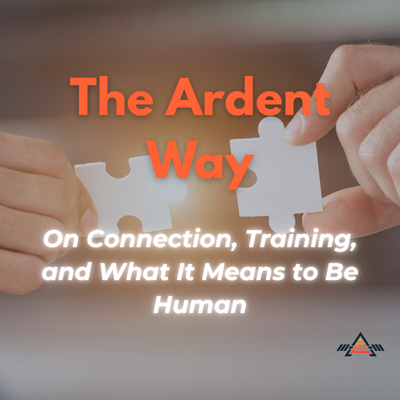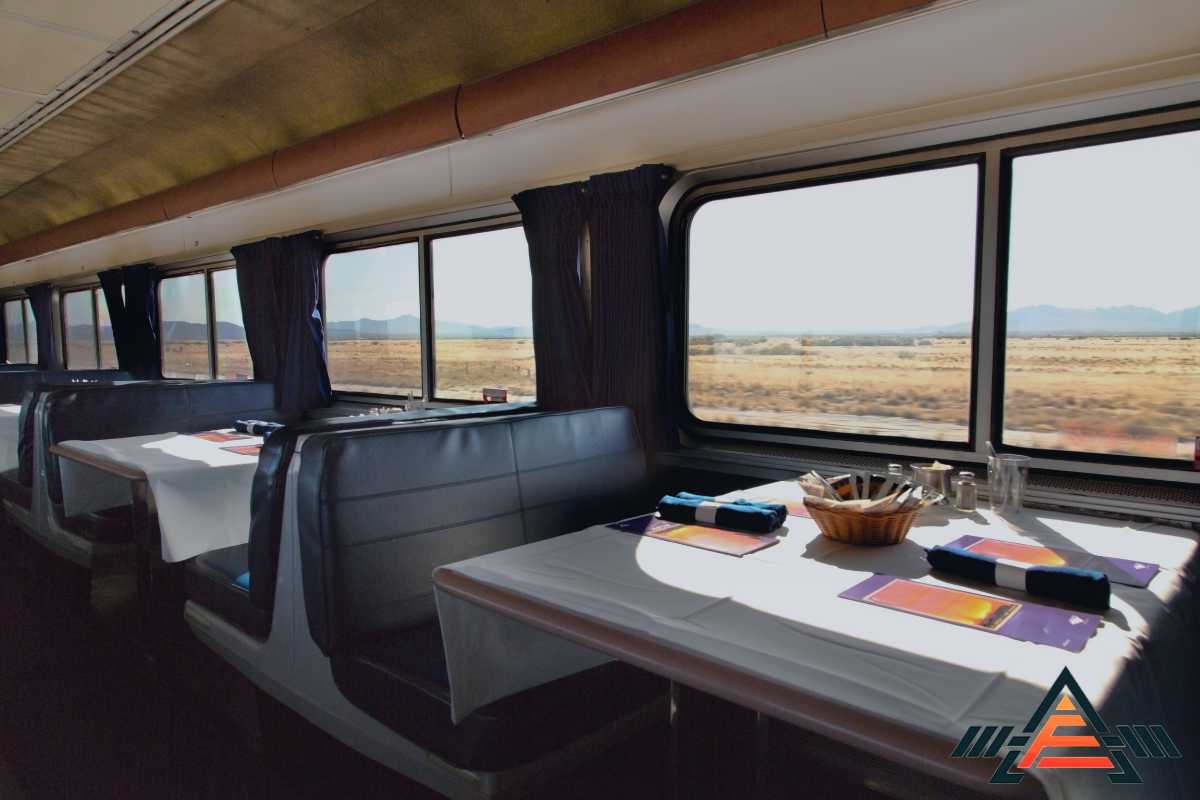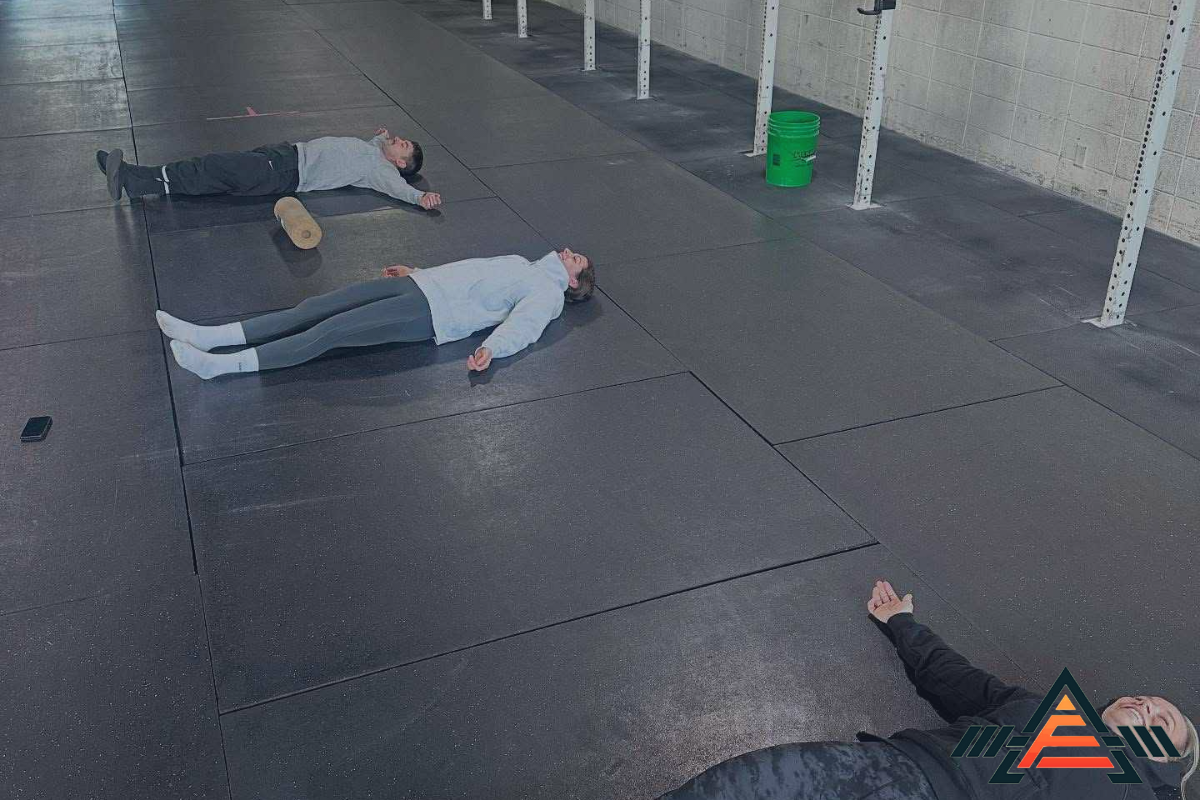The Ardent Way: On Connection, Trains, and What It means to Be Human


There’s a kind of loneliness most people don’t talk about.
Not the kind where you’re alone.
The kind where you’re surrounded by people but feel invisible.
Where you scroll and scroll, but 30 second clips are not filling the void.
Where your body shows up, but your head and heart stay on vacation.
Where you’re in motion, but not connected to anything.
This isn't a weakness. It’s not brokenness.
It’s a symptom of a culture that’s forgotten something fundamental:
We need each other.
When my wife and I boarded Amtrak’s Empire Builder headed to Washington, we didn’t know what to expect. It was our first time on a long-distance train. We had a small sleeper car and meals were included.
At dinner, we were called to the dining car and seated, without warning, across from total strangers.
No privacy. No separate tables. Just us and two people we’d never met.
My initial thought: What in the f*ck is this?
I tried to smile, a closed-mouth smile, to hide the chip in my tooth the VA still hasn’t fixed, and prepare for an uncomfortable interaction with strangers.
But then something happened.
By the end of that meal, we were laughing with those strangers.
Listening. Asking questions. Sharing stories we didn’t expect to tell.

Forced Connection is Still Connection
It reminded me of the military, “mandatory fun,” and being placed beside people you didn’t choose in an activity you are forced to attend.
But forced connection can be a real connection. Just like, on occasion, “mandatory fun” can be fun.
It pulls you out of your curated circle.
It places you with people you’d never meet otherwise.
And sometimes, it leads to something meaningful.
That’s what happened on the train. And honestly, that’s what happens in gyms like ours every day.
You show up expecting to move weight. You end up forming friendships.
You meet someone over the assault bike, and three months later you’re cheering each other on through the hardest season of your life.
That’s spontaneous communitas, a term that describes connection born in the liminal space between identities, in shared struggle, in ritual moments.
And we don’t talk about it enough.
At Ardent, we believe connection is a pillar of health, equal to movement, recovery, and nutrition.
Because the absence of connection is deadly.
It increases suicide risk.
It weakens the immune system.
It heightens inflammation and chronic disease.
It damages the nervous system.
It erodes your sense of purpose.
This isn’t soft science. This is backed by research.
And it's why connection isn’t optional, it’s essential.
In our gym, connection isn’t something we force. But it’s something we design for intentionally in space, vulnerability, and repetition.
In your first 100 days at Ardent, you’ll be challenged.
New routines. New faces. New stories.
But if connection happens early, between a coach or another member, it changes everything.
You’re not just working out anymore.
You’re building a rhythm.
You’re building a lifestyle.
You’re building a circle.
And that’s what makes the difference between someone who drops out in month two… and someone who’s still here in year three, helping others through their journey.
We used to be a culture of storytellers.
Now we’re a culture of story-sellers.
(I picked that up from Byung-Chul Han and The Crisis of Narration)
Optimized clips. 30-second scrolls.
Content without context. Noise without presence.
We’re the most connected society in history.
And somehow, the loneliest.
We’ve mistaken attention for intimacy.
We’ve mistaken visibility for meaning.
And it's changing what it means to be human.
If my kids ever asked, “Why do people need each other?”
I’d tell them this:
We are, and always have been, social animals.
We evolved in tribes. We survive in the community.
That idea of rugged individualism?
It’s a myth. A dangerous one.
Connection expands our life beyond what we can do alone.
I may never go on a stag hunt in New Zealand.
But I have a friend who will, and when I hear his story, I’ll feel part of it too.
That’s what humans do. We share stories. We live through each other.
That’s how we learn, grow, and understand the world.
Victor Turner called this communitas, the powerful human connection that happens in liminal spaces. Between roles. Between identities. Between one chapter and the next.
It happens in train cars.
It happens in military units.
It happens in gyms.
It happens in moments we don't plan and only recognize once they pass.
Structure is what we inherit.
Communitas is what we make in the moment.
Most spaces aren’t built for belonging.
They’re built for speed. Efficiency. Output.
But sometimes, those same spaces (train tables, squat racks) create the exact conditions for connection.
Not because of design.
But because of proximity. Repetition. Vulnerability.
At Ardent, we don’t leave that to chance.
We create rituals.
We build containers.
We make it easier for people to see each other.
Because connection doesn’t happen by accident.
It happens by invitation.
We also believe that connection requires safety.
Not coddling, honest safety.
We tell the truth.
We own our flaws.
We show you that our coaches struggle, too.
I struggle too.
And once you realize that nobody in the gym is watching your every move…
That they’re mostly thinking about themselves, their reps, their own form…
You’re free.
That’s the Cornell “Spotlight Effect.”
People care far less than you think.
Which means you don’t need to fear failing a lift or messing up a set.
You just need to show up tomorrow.
I was playing with my daughter the other night.
She was laughing. Glowing. One of those moments.
I caught myself thinking, “This would be a great picture.”
But I didn’t grab my phone.
I stayed.
Present.
Watching her laugh.
Making the memory in real time, not through a screen.
That’s connection too.
And it’s something we’re all hungry for, whether we say it or not.
Then maybe something landed.
Maybe you’ve felt the disconnection too.
Maybe you're tired of pretending you're fine.
Maybe you’re just looking for a reason to start again.
So here’s what I’d offer you:
Connection doesn’t have to be complicated.
But it does take effort.
And it starts with being here, right now.

You’re not alone.
You never were.
Welcome to The Ardent Way.